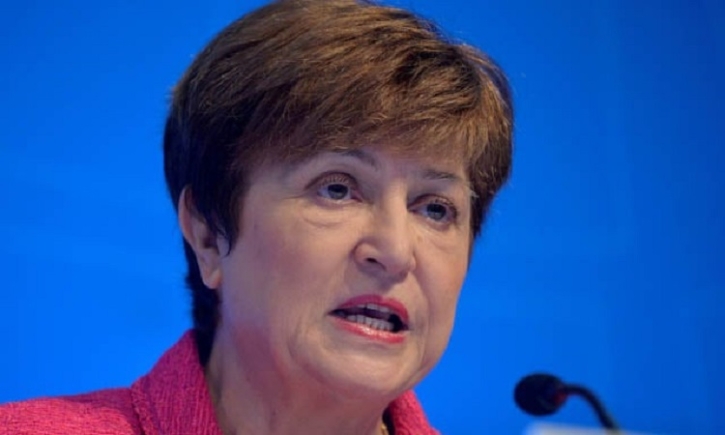’Robust’ US has helped improve global economic outlook: IMF chief
BI Desk || BusinessInsider

Photo: Collected
Strong growth in the United States has helped to lift the outlook for the world economy, but more needs to be done to stem a slide in productivity, the head of the IMF said Thursday.
"Global growth is marginally stronger on account of robust activity in the United States and in a number of emerging markets economies," International Monetary Fund managing director Kristalina Georgieva said in a speech in Washington.
The US economy grew by a robust 2.5 percent last year, according to the Commerce Department, far outstripping most other advanced economies, reports BSS/AFP.
"Sustained household consumption and business investment, and an easing of supply chain problems helped," Georgieva added. "And inflation is going down."
She spoke days before the IMF-World Bank spring meetings of world financial leaders in Washington, one of two such gatherings hosted annually by the international institutions.
Her remarks suggest the IMF now expects the world economy to grow faster than it predicted in January, when it forecast global growth to rise by 3.1 percent in 2024, and 3.2 percent in 2025.
"It is tempting to breathe a sigh of relief. We have avoided a global recession and a period of stagflation," Georgieva said.
"But there are still plenty of things to worry about."
- Geopolitical tension -
A challenge Georgieva mentioned was rising geopolitical tension, which increases the risk of fragmentation in the global economy.
"We have to buckle up for more to come," she told a question-and-answer session when asked if volatility is the new normal in international affairs.
Georgieva also noted that while China, the world's second biggest economy, has taken steps to address problems in its struggling property sector, "they can do more."
This includes being more decisive in dealing with failing companies and directing support towards uncompleted construction, given the key role real estate has in boosting people's confidence.
Beijing also needs to improve domestic demand and deal with issues like local government debt, she said, stressing that China contributes a third of global growth and is important for the world.
Georgieva also broadly highlighted the challenges of growing public debt and a "broad-based slowdown in productivity."
Because of this, the IMF expects growth to remain at just above three percent over the medium term -- below its historical average.
To help the global economy to heal and fix the productivity challenge, Georgieva laid out steps to bring global inflation and public debt back down to sustainable levels, and also called for moves to eliminate "constraints to economic activity."
"In short, if there is a market failure that needs to be addressed -- such as accelerating innovation to address the existential threat of climate change -- there is a case for government intervention, including through industrial policy," she said.
"If there is no market failure, there is a need for caution," she added.
























